18 start with S start with S

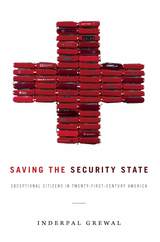
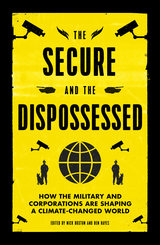
The Secure and the Dispossessed gathers together essays by high-profile journalists, academics, and activists, including Christian Parenti, Nafeez Ahmed, and policy analyst Oscar Reyes. They offer a close and critical guide to questions about climate change, showing how they converge with questions about international security and global economic power, as new natural resources become available. This book is an essential guide to the key environmental and political debates which will shape future policies and elections: how managing the world’s supply of oil and gas can be squared with the environmental impact of our continued reliance on those very same fossil fuels.
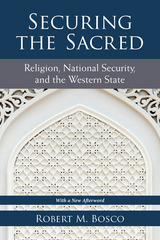
Despite significant theoretical distinctions between securitization on the domestic and the international levels, he finds that the outcome of addressing religion within the context of security hinges upon partnerships. Whereas states may harness the power of international allies, they cannot often find analogous domestic allies; therefore, states that attempt to securitize religion at home are more vulnerable to counterattack and more likely to abandon their efforts. Securing the Sacred makes a significant contribution to the fields of political theory, international relations, Islamic studies, and security/military studies.
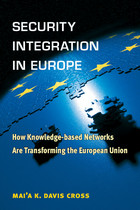
At a time when many observers question the EU’s ability to achieve integration of any significance, and indeed Europeans themselves appear disillusioned, Mai’a K. Davis Cross argues that the EU has made remarkable advances in security integration, in both its external and internal dimensions. Moreover, internal security integration—such as dealing with terrorism, immigration, cross-border crime, and drug and human trafficking—has made even greater progress with dismantling certain barriers that previously stood at the core of traditional state sovereignty.
Such unprecedented collaboration has become possible thanks to knowledge-based transnational networks, or “epistemic communities,” of ambassadors, military generals, scientists, and other experts who supersede national governments in the diplomacy of security decision making and are making headway at remarkable speed by virtue of their shared expertise, common culture, professional norms, and frequent meetings. Cross brings together nearly 80 personal interviews and a host of recent government documents over the course of five separate case studies to provide a microsociological account of how governance really works in today’s EU and what future role it is likely to play in the international environment.
“This is an ambitious work which deals not only with European security and defense but also has much to say about the policy-making process of the EU in general.”
—Ezra Suleiman, Princeton University
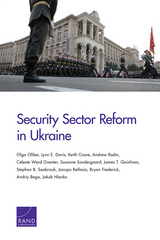

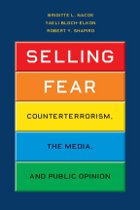
While we’ve long known that the strategies of terrorism rely heavily on media coverage of attacks, Selling Fear is the first detailed look at the role played by media in counterterrorism—and the ways that, in the wake of 9/11, the Bush administration manipulated coverage to maintain a climate of fear.
Drawing on in-depth analysis of counterterrorism in the years after 9/11—including the issuance of terror alerts and the decision to invade Iraq—the authors present a compelling case that the Bush administration hyped fear, while obscuring civil liberties abuses and concrete issues of preparedness. The media, meanwhile, largely abdicated its watchdog role, choosing to amplify the administration’s message while downplaying issues that might have called the administration’s statements and strategies into question. The book extends through Hurricane Katrina, and the more skeptical coverage that followed, then the first year of the Obama administration, when an increasingly partisan political environment presented the media, and the public, with new problems of reporting and interpretation.
Selling Fear is a hard-hitting analysis of the intertwined failures of government and media—and their costs to our nation.
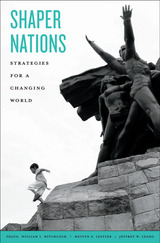
Shaper Nations provides illuminating perspectives on the national strategies of eight emerging and established countries that are shaping global politics at the beginning of the twenty-first century. The volume’s authors offer a unique viewpoint: they live and work primarily in the country about which they write, bringing an insider’s feel for national debates and politics.
The conventional wisdom on national strategy suggests that these states have clear central authority, coherently connect means to ends, and focus on their geopolitical environment. These essays suggest a different conclusion. In seven key countries—Brazil, China, Germany, India, Israel, Russia, and Turkey—strategy is dominated by nonstate threats, domestic politics, the distorting effect of history and national identity, economic development concerns, and the sheer difficulty, in the face of many powerful internal and external constraints, of pursuing an effective national strategy.
The shapers represent a new trend in the international arena with important consequences. Among them is a more uncertain world in which countries concentrate on their own development rather than on shared problems that might divert precious resources, and attend more to regional than to global order. In responding to these shaper states, the United States must understand the sources of their national strategies in determining its own role on the global stage.
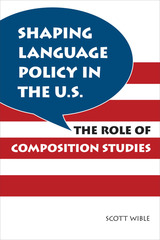
In Shaping Language Policy in the U.S.: The Role of Composition Studies, author Scott Wible explores the significance and application of two of the Conference on College Composition and Communication’s key language policy statements: the 1974 Students’ Right to Their Own Language resolution and the 1988 National Language Policy. Wible draws from a wealth of previously unavailable archived material and professional literature to offer for the first time a comprehensive examination of these policies and their legacies that continue to shape the worlds of rhetoric, politics, and composition.
Wible demonstrates the continued relevance of the CCCC’s policies, particularly their role in influencing the recent, post-9/11 emergence of a national security language policy. He discusses in depth the role the CCCC’s language policy statements can play in shaping the U.S. government’s growing awareness of the importance of foreign language education, and he offers practical discussions of the policies’ pedagogical, professional, and political implications for rhetoric and composition scholars who engage contemporary debates about the politics of linguistic diversity and language arts education in the United States. Shaping Language Policy in the U.S. reveals the numerous ways in which the CCCC language policies have usefully informed educators’ professional practices and public service and investigates how these policies can continue to guide scholars and teachers in the future.

When crisis requires American troops to deploy on American soil, the country depends on a rich and evolving body of law to establish clear lines of authority, safeguard civil liberties, and protect its democratic institutions and traditions. Since the attacks of 9/11, the governing law has changed rapidly even as domestic threats—from terror attacks, extreme weather, and pandemics—mount. Soldiers on the Home Front is the first book to systematically analyze the domestic role of the military as it is shaped by law, surveying America’s history of judicial decisions, constitutional provisions, statutes, regulations, military orders, and martial law to ask what we must learn and do before the next crisis.
America’s military is uniquely able to save lives and restore order in situations that overwhelm civilian institutions. Yet the U.S. military has also been called in for more coercive duties at home: breaking strikes, quelling riots, and enforcing federal laws in the face of state resistance. It has spied on and overseen the imprisonment of American citizens during wars, Red scares, and other emergencies. And while the fears of the Republic’s founders that a strong army could undermine democracy have not been realized, history is replete with reasons for concern.
At a time when the military’s domestic footprint is expanding, Banks and Dycus offer a thorough analysis of the relevant law and history to challenge all the stakeholders—within and outside the military—to critically assess the past in order to establish best practices for the crises to come.
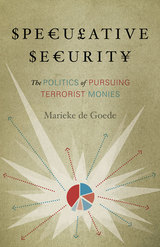
Since the terrorist acts of September 11, 2001, finance and security have become joined in new ways to produce particular targets of state surveillance. In Speculative Security, Marieke de Goede describes how previously unscrutinized practices such as donations and remittances, especially across national borders, have been affected by security measures that include datamining, asset freezing, and transnational regulation. These “precrime” measures focus on transactions that are perfectly legal but are thought to hold a specific potential to support terrorism. The pursuit of suspect monies is not simply an issue of financial regulation, she shows, but a broad political, social, and even cultural phenomenon with profound effects on everyday life.
Speculative Security offers a range of examples that illustrate the types of security interventions employed today, including the extralegal targeting and breaking up of the al-Barakaat financial network that was accompanied by raids in the United States, asset freezes in Sweden, and the incarceration of a money remitter at Guantánamo Bay. De Goede develops the paradigm of “speculative security” as a way to understand the new fusing of finance and security, denoting the speculative nature of both the means and the ends of the war on terrorist financing.
Ultimately, de Goede reveals how the idea of creating “security” appeals to multiple imaginable—and unimaginable—futures in order to enable action in the present.

In spring of 1953, newly elected President Eisenhower sat down with his staff to discuss the state of American strategy in the cold war. America, he insisted, needed a new approach to an urgent situation. From this meeting emerged Eisenhower’s teams of “bright young fellows,” charged with developing competing policies, each of which would come to shape global politics. In Spirits of the Cold War, Ned O’Gorman argues that the early Cold War was a crucible not only for contesting political strategies, but also for competing conceptions of America and its place in the world. Drawing on extensive archival research and wide reading in intellectual and rhetorical histories, this comprehensive account shows cold warriors debating “worldviews” in addition to more strictly instrumental tactical aims. Spirits of the Cold War is a rigorous scholarly account of the strategic debate of the early Cold War—a cultural diagnostic of American security discourse and an examination of its origins.

By almost any measure, the United States is the most powerful nation in the history of civilization. Our resources are immense. But they are not limitless. Today national security requires agility to stay a step ahead of threats that can rapidly appear and change, and endurance to deal with challengers that are unlikely to disappear anytime soon. The central question for U.S. leaders today is how can we retain our strategic advantage and continue to set the agenda for world affairs? All our other goals—promoting freedom, prosperity, human rights, and ensuring the security of Americans—depend on getting the fundamentals right.
Strategic Advantage: Challengers, Competitors, and Threats to America's Future is a concise and provocative analysis of national security policy today—and tomorrow. Drawing on history and contemporary examples, Bruce Berkowitz deftly identifies those countries, groups, and movements that pose the greatest challenges to the United States and suggests ways to deal with them. He lucidly analyzes the components of national power—economic clout, military capability, and cultural influence—that America must sustain if it hopes to maintain its position in the world in the decades ahead.
Strategic Advantage outlines how the United States can stay ahead of potential threats by drawing on the distinctively American culture that rewards entrepreneurship and supports a strong military; by promoting economic growth at home and competing for talent and capital from abroad; by fixing the national security command structure; and by adopting a national strategy that balances goals, costs, and risks. With pacing, foresight, and planning, Berkowitz says, the United States can sustain its global leadership for the long haul.
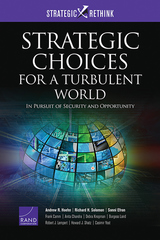

Liz Fekete is a leading authority on issues of racism, Islamophobia and national security legislation. A Suitable Enemy draws on sixteen years of research to present a comprehensive overview of EU immigration, asylum, race and security policies.
Fekete argues that at the same time as the EU introduces selective migration policies, it closes its borders against asylum seekers who were the first victims of the growth of the security state which now embraces Muslims. She explores the way in which anti-terrorist legislation has been used to evict undesirable migrants, how deportation policies commodify and de-humanise the most vulnerable and how these go hand in hand with evolving forms of racism, particularly Islamophobia.
At the heart of the book is an examination of xeno-racism -- a non-colour coded form of institutionalised racism -- where migrants who do not assimilate, or who are believed to be incapable of assimilation, are excluded.
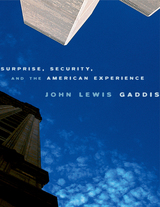
September 11, 2001, distinguished Cold War historian John Lewis Gaddis argues, was not the first time a surprise attack shattered American assumptions about national security and reshaped American grand strategy. We've been there before, and have responded each time by dramatically expanding our security responsibilities.
The pattern began in 1814, when the British attacked Washington, burning the White House and the Capitol. This early violation of homeland security gave rise to a strategy of unilateralism and preemption, best articulated by John Quincy Adams, aimed at maintaining strength beyond challenge throughout the North American continent. It remained in place for over a century. Only when the Japanese attacked Pearl Harbor in 1941 did the inadequacies of this strategy become evident: as a consequence, the administration of Franklin D. Roosevelt devised a new grand strategy of cooperation with allies on an intercontinental scale to defeat authoritarianism. That strategy defined the American approach throughout World War II and the Cold War.
The terrorist attacks of 9/11, Gaddis writes, made it clear that this strategy was now insufficient to ensure American security. The Bush administration has, therefore, devised a new grand strategy whose foundations lie in the nineteenth-century tradition of unilateralism, preemption, and hegemony, projected this time on a global scale. How successful it will be in the face of twenty-first-century challenges is the question that confronts us. This provocative book, informed by the experiences of the past but focused on the present and the future, is one of the first attempts by a major scholar of grand strategy and international relations to provide an answer.
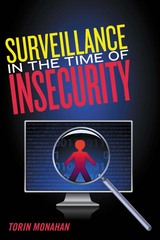
Surveillance in the Time of Insecurity fuses advanced theoretical accounts of state power and neoliberalism with original research from the social settings in which insecurity dynamics play out in the new century. Torin Monahan explores the counterterrorism-themed show 24, Rapture fiction, traffic control centers, security conferences, public housing, and gated communities, and examines how each manifests complex relationships of inequality, insecurity, and surveillance. Alleviating insecurity requires that we confront its mythic dimensions, the politics inherent in new configurations of security provision, and the structural obstacles to achieving equality in societies.
READERS
Browse our collection.
PUBLISHERS
See BiblioVault's publisher services.
STUDENT SERVICES
Files for college accessibility offices.
UChicago Accessibility Resources
home | accessibility | search | about | contact us
BiblioVault ® 2001 - 2024
The University of Chicago Press









